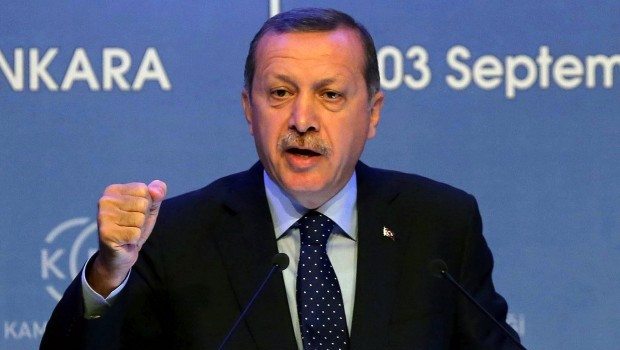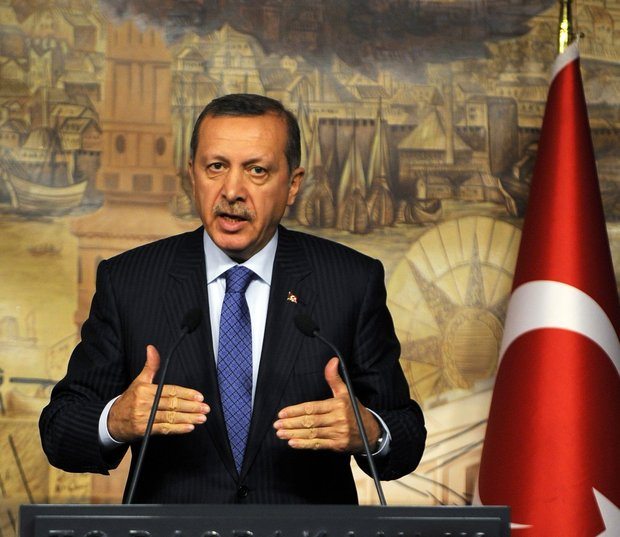HOMELAND INSECURITY
White House welcomes Shariah finance specialist
June 25, 2010
Samar Ali (Photo: Vanderbilt Register)
By Chelsea Schilling
The Obama administration has announced its appointment of 13 White House fellows – and the first person featured on its short list is a Muslim attorney who specializes in Shariah-compliant transactions.
“This year’s White House fellows are comprised of some of the best and brightest leaders in our country,” Michelle Obama said in the June 22 announcement. “I applaud their unyielding commitment to public service and dedication to serving their community.”
White House fellows spend a year as full-time, paid assistants to senior White House staff, the vice president, Cabinet secretaries and senior administration officials.
Samar Ali of Waverly, Tenn., is the first name appearing on the White House list. She is an associate with the law firm Hogan Lovells – a firm that claims to have advised on more than 200 Islamic finance transactions with an aggregate deal value in excess of $40 billion.
What does Islam plan for America? Read “Muslim Mafia: Inside the Secret Underworld That’s Conspiring to Islamize America” and find out!
According to Ali’s biography posted on the White House website, “She is responsible for counseling clients on mergers & acquisitions, cross-border transactions, Shari’a compliant transactions, project finance, and international business matters. During her time with Hogan Lovells, she has been a founding member of the firm’s Abu Dhabi office.”
Hogan Lovells lists Ali’s experience “advising a Middle Eastern university in the potential establishment of a Foreign Aid Conventional and Shari’ah Compliant Student Loan Program and advising a Middle Eastern client in relation to a U.S. government subcontract matter.”
“Our team members are at the forefront of developments in the Islamic finance industry,” Hogan Lovells boasts. “We help set standards for the sector. We have also advised on numerous first-of-their-kind transactions, such as the first convertible Sukuk, the first equity-linked Sukuk, the first Sharia-compliant securitization, the first international Sukuk al-mudaraba and Sukuk al-musharaka, the first Sukuk buy-back, and the first Multilateral Investment Guarantee Agency (MIGA) guaranteed Islamic project financing.”
Ali also clerked for Judge Gilbert S. Merritt of the U.S. Court of Appeals for the Sixth Circuit and Judge Edwin Cameron, now of the Constitutional Court of South Africa.
Promoting Islam and Shariah
The White House notes that Ali also led the YMCA Israeli-Palestinian Modern Voices for Progress Program and is a founding member of the first U.S. Delegation to the World Islamic Economic Forum. Ali was listed as a member of the British delegation to the World Islamic Economic Forum in 2009 and as a U.S. delegate in 2010.
Shariah Finance Watch blog noted, “[I]t was at the World Islamic Economic Forum where key leaders declared Shariah finance to be “dawa” (missionary) activity to promote Islam and Shariah.”
In fact, the president of Indonesia, H. Susilo Bambang Yudhoyono, delivered a March 2, 2009, keynote address to Islamic leaders at the World Islamic Economic Forum in Jakarta during which he called for Islamic banks to do “missionary work in the Western world.”
“Islamic banking should now be able to take a leadership position in the banking world,” he said. “Islamic banks have been much less affected by the financial meltdown than the conventional banks – for the obvious reason that Shariah banks do not indulge in investing in toxic assets and in leveraged funds. They are geared to supporting the real economy.”
He added, “Islamic bankers should therefore do some missionary work in the Western world to promote the concept of Shariah banking, for which many in the West are more than ready now.”
‘We didn’t consider terrorists to be Muslims’
Ali received her law degree from Vanderbilt Law School and served as the first Arab-Muslim student body president at Vanderbilt. She has interned for the Islamic International Arab Bank in Amman, Jordan.
According to Vanderbilt Law School, Ali’s mother immigrated to the U.S. from Syria, and her father is Palestinian. He left the West Bank town of Ramallah at age 17.
America.gov reported that Ali said her parents taught her to “never forget where we came from and to never forget where we are now.”
“I will always be Arab and I will always be American and I will always be Muslim,” she said.
Ali spoke out at a campus memorial service days after the Sept. 11 terrorist attacks.
“In my opinion,” she told the Washington File, “Al-Qaida is trying to ruin Islam’s reputation and we are simply not going to let them win this fight. If someone has a political agenda, they need to call it what it is, and not disguise it in the name of a religion or use the religion to achieve their political goals. This is simply unacceptable.”
While she said she grieved the loss of thousands of American lives, Ali told the File she grew concerned about whether Americans would assume that she, as aMuslim and Arab-American, approved of those attacks.
“Thus, I was worried that many of my fellow citizens, would not realize that just because my friends and I are Muslims and Arabs, did not mean that we were part of or even agreed with the terrorists who caused September 11,” she said. “We didn’t even consider the terrorists to be Muslims. I was worried that people would confuse Islam with Osama Bin Ladin and his agenda, that they would confuse his agenda as the agenda of all believers in Islam.”
(Creeping Shariah
Shariah already is moving into some elements of American society, with a lawsuit pending over U.S. government involvement in a financial institution that accommodates Shariah requirements in its business operations.
WND also reported in November 2008 that the Treasury Department sponsored and promoted a conference titled “Islamic Finance 101.”
Islamic finance is a system of banking consistent with the principles of Shariah, or Islamic law. It is becoming increasingly popular, having reached $800 billion by mid-2007 and growing at more than 15 percent each year. Wall Street now features an Islamic mutual fund and an Islamic index. However, critics claim anti-American terrorists are often financially supported through U.S. investments – creating a system by which the nation funds its own enemy.
In his July 2008 essay, “Financial Jihad: What Americans Need to Know,” Vice President Christopher Holton of the Center for Security Policy wrote, “America is losing the financial war on terror because Wall Street is embracing a subversive enemy ideology on one hand and providing corporate life support to state sponsors of terrorism on the other hand.”
Holton referred to Islamic finance, or “Shariah-Compliant Finance” as a “modern-day Trojan horse” infiltrating the U.S. He said it poses a threat to the U.S. because it seeks to legitimize Shariah – a man-made medieval doctrine that regulates every aspect of life for Muslims – and could ultimately change American life and laws.
Some advocates claim Islamic finance is socially responsible because it bans investors from funding companies that sell or promote products such as alcohol, tobacco, pornography, gambling and even pork.
However, many Islamic financial institutions also require industry participants to adhere to tenets of Shariah law. According to Nasser Suleiman’s “Corporate Governance inIslamic Banking , “First and foremost, an Islamic organization must serve God. It must develop a distinctive corporate culture, the main purpose of which is to create a collective morality and spirituality which, when combined with the production of goods and services, sustains growth and the advancement of the Islamic way of life.”
Three nations that rule 100 percent by Shariah law – Iran, Saudi Arabia and Sudan – hold some of the most horrific human rights records in the world, Holton said.
“This strongly suggests that Americans should strenuously resist anything associated with Shariah.”
Tenets of Shariah
In his essay, “Islamic Finance or Financing Islamism,” Alex Alexiev outlined the following tenets of Shariah taken from “The Reliance of the Traveler: The Classic Manual of Sacred Law”:
- A woman is eligible for only half of the inheritance of a man
- A virgin may be married against her will by her father or grandfather
- A woman may not leave the house without her husband’s permission
- A Muslim man may marry four women, including Christians and Jews; a Muslim woman can only marry a Muslim
- Beating an insubordinate wife is permissible
- Female sexual mutilation is obligatory
- Adultery [or the perception of adultery] is punished by death by stoning
- Offensive, military jihad against non-Muslims is a religious obligation
- Apostasy from Islam is punishable by death without trial
- Lying to infidels in time of jihad is permissible
‘Useful idiots’
Alexiev wrote that many Islamic financial institutions claim Shariah-Compliant Finance “derives its Islamic character from the strict observance of the ostensible Quranic prohibition of lending at interest, the imperative of almsgiving (zakat), avoidance of excessive uncertainty (gharar) and certain practices and products considered unlawful (haram) to Muslims …” However, he said, “[E]ven a casual examination of the reality of Islamic finance today reveals it to be a bogus concept practiced by deceptive ploys and disingenuous means by practitioners that are or should be aware of that, but remain predictably silent.”
Shariah finance institutions have funded militant Islamism for more than 30 years. Alexiev cited Islamic Development Bank’s hundreds of millions of dollars in contributions to Hamas in support of suicide bombing. Bank Al-Taqwa and other banks and charities run by Saudi billionaires have funded al-Qaida activities.
Additionally, Shariah law mandates that Muslims donate 2.5 percent of their annual incomes to charities – including jihadists. When 400 banks regularly contribute to such charities, potential financial sums can be virtually limitless.
If Western banks endorse Shariah, they will “end up becoming what Lenin called useful idiots or worse to the Islamists,” Alexiev wrote. “And it is a very thin line between that and outright complicity in the Islamist agenda.”








